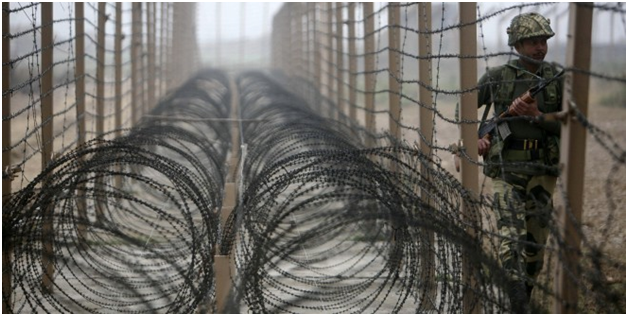INDIA ISSUES ULTIMATUM, PAKISTAN CANCELS TALKS
India Pakistan talks cancelled

NEW DELHI: The cat and mouse game between India and Pakistan is finally over. Pakistan called off the talks after a press conference by Minister of External Affairs Sushma Swaraj where she made it clear that the National Security Advisor level talks were to be only on terrorism and if Pakistan did not agree, the talks on August 23-24 would not take place.
She issued an ultimatum giving just till the night for Pakistan to respond to these conditions. The response, a few hours later, was the cancellation of talks. The first indication here was a telephone call from the Pakistan High Commission cancelling a reception being hosted for Aziz on Sunday which was expected to be attended by Hurriyat leaders as well. However, those who did arrive in Delhi for this--Shabir Shah and Bilal Lone---were detained in their places of residence.
Pakistan NSA Sartaj Aziz in a press conference in Islamabad earlier in the day had made it very clear that if the talks were held he would raise the issue of Kashmir. How can there be talks without Kashmir, he said adding that he was prepared to go to New Delhi for the scheduled dialogue without pre-conditions.
Minister Swaraj issued an ultimatum, making it clear that Pakistan had just till “this night” to assure her government that it would not raise Kashmir, and stick to the agenda of terrorism and related issues during the NSA level talks.
Interestingly, insofar as sheer diplomacy was concerned Swaraj was a step ahead of Pakistan and the slightly defensive press conference held by Aziz. She went through the composite dialogue history, from 1998 when it was established, through the years including the interruptions because of Kargil and the Mumbai terror attack. She said that when the dialogue was resumed after a longer hiatus in 2010 it was called a ‘resumed dialogue’ but included all the eight issues with a little modification that had been agreed on for discussion. She listed the issues that of course included Kashmir.
Swaraj then read from the Ufa joint statement of the two foreign secretaries, following the meeting between Prime Minister Narendra Modi and Prime Minister Nawaz Sharif. The statement, as she pointed out, clearly stated, that the NSA round of talks would be on terrorism. She explained that the understanding reached at Ufa was that terrorism and violence along the Line of Control had vitiated the environment for the resumption of the composite dialogue, and to resume the discussion it would be best to discuss terrorism first. Two other meetings, as she said, were also agreed on between the BSF-Pakistan Rangers on Border violence, and between the Army Director Generals of Military Operations on ceasefire violations.
Swaraj was right as in the Ufa statement it is very clearly stated: “Both leaders condemned terrorism in all its forms and agreed to cooperate with each other to eliminate this menace from South Asia.
They also agreed on the following steps to be taken by the two sides:
1. A meeting in New Delhi between the two NSAs to discuss all issues connected to terrorism.
2. Early meetings of DG BSF and DG Pakistan Rangers followed by that of DGMOs.
3. Decision for release of fishermen in each other’s custody, along with their boats, within a period of 15 days.
4. Mechanism for facilitating religious tourism.
5. Both sides agreed to discuss ways and means to expedite the Mumbai case trial, including additional information like providing voice samples.”
There was no mention of Kashmir in this statement and no proviso for its discussion in the NSA meeting. PM Sharif received flak when he returned home, as the statement was seen by the military in Pakistan as a major give in on his part. The criticism spread, and Sharif and his government on the backfoot were compelled to raise the issue of Kashmir even though they had failed to ensure its mention in the Ufa joint statement that was the basis of this NSA meeting.
Swaraj repeatedly asserted that India was committed to discussing the eight outstanding issues when the larger dialogue resumed. But for the purpose of this meeting there could be a discussion only on terrorism and related issues. She also insisted, in what was clearly a portend for the future as well, that Pakistan’s regular meetings that had been allowed by successive governments over the years with Kashmir leaders would no longer be permitted. She spoke of the Simla agreement signed by late Prime Ministers Indira Gandhi and Zulfiqar Ali Bhutto where it had been agreed that no third party will be allowed in India Pakistan talks. She made it clear that her government would not allow the Hurriyat to be part of the dialogue, and objected to Pakistan bringing it in as a stakeholder.
Aziz on the other hand had made it clear that Pakistan would continue with the meetings with the Hurriyat leaders, and that this had been going on for almost two decades now. He asserted that Pakistan was committed to the dialogue, and that it expected Kashmir to be central to it. He also raised three dossiers that Pakistan had prepared to prove Indian intelligence involvement in terror attacks with Pakistan.



